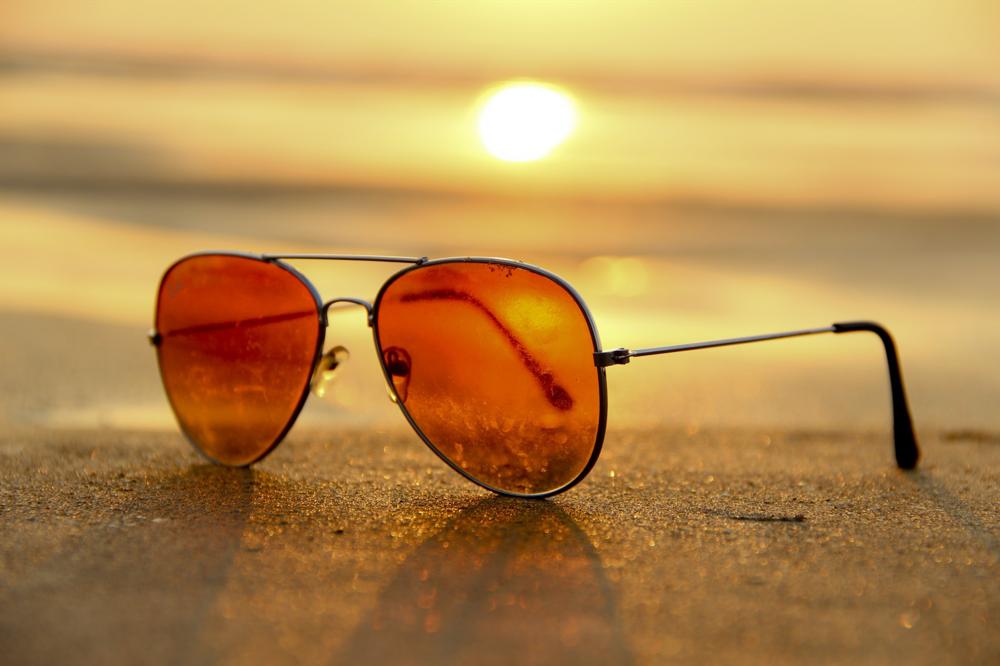Nowadays, sunglasses come in all shapes and sizes. There are butterfly sunglasses, aviator sunglasses, cat-eye sunglasses, and so on. Some models look fabulous but offer little or no protection for your eyes.
High-energy light rays may affect your vision in the long run. Quality sunglasses can help reduce this risk and keep your eyes healthy until late in life. That's why you should find a model that only fits your personality and style but also protects your eyes.
Choosing the best sunglasses for eye protection isn't easy, though. There are thousands of models on the market, and each serves a different purpose.
Some are ideal for sunny conditions but cannot be used when driving because of the density of tint. Others look fashionable but have cheap lenses that fail to block UV rays.
Feeling confused? That's perfectly normal. Unless you're an ophthalmologist, it can be difficult to choose the right sunglasses without some help.
Keep these tips in mind the next time you go shopping to make sure you get a pair of sunglasses that actually protect your eyes!

How Does Ultraviolet Light Affect Eyesight?
The American Academy of Ophthalmology (AAO) warns about the dangers of UV light. As it turns out, some people are more sensitive to UV damage than others.
Children, individuals with light-colored eyes, and those who've had cataract surgery should protect their eyes in sunny conditions.
The same goes for people who take certain antibiotics, birth control pills, and other medications that increase sensitivity to light. In general, any medications that make your skin more sensitive to UV rays will have the same effect on your eyes.
Even those who don't fall into these categories may develop eye disorders following prolonged exposure to UV light.
UVA rays may affect central vision because of their damaging effect on the macula. UVB rays, on the other hand, may damage the cornea and other tissues in the front part of your eyes.
Leaving your eyes unprotected can lead to cataracts, macular degeneration, corneal sunburn, and skin cancer around the eyelids. There is also a risk of photoconjunctivitis, a condition characterized by inflammation of the conjunctiva — the tissue lining the inside of your eyelids.
Considering these facts, it makes sense to choose sunglasses that not only look good but also protect your eyes. Ideally, look for a model that can filter out at least 99 percent of UV rays and reduce glare.
Choose the Best Sunglasses for Eye Protection
As mentioned earlier, not all sunglasses are created equal. Just because your favorite shades look great, it doesn't mean they protect your eyes.
Don't take any risks when it comes to eye health. Look for sunglasses that meet the following criteria:
- Have premium anti-glare, or anti-reflective, lenses
- Are professionally tinted
- Are comfortable to wear
- Filter out 99 to 100 percent of UVA and UVB rays
- Feature lenses that are free of distortion and imperfections
- Screen out at least 75 percent of visible light
If you spend a lot of time outdoors in sunny conditions, select a pair of sunglasses with wraparound frames.
Outdoor sports enthusiasts should choose a model made from polycarbonate as it's more resistant to impact.
Contrary to popular belief, the color or tint has nothing to do with UV protection. Therefore, you can choose a pair of shades in any color as long as the lenses have a quality UV filter.
Opt for Polarized Lenses
When it comes to eye protection, polarized lenses are your best bet. While it's true that tinted sunglasses reduce brightness, they're not effective against glare.
Polarized lenses, on the other hand, eliminate glare and protect your eyes due to a special chemical applied to them. They're effective at filtering light and make the objects around you look crispier and clearer.
Our online store features a large selection of polarized sunglasses for women, so make sure you check it out!
Burberry BE4160, for instance, is an oversized model in a square shape, which can complement any outfit. It goes with power suits as well as summer dresses and winter coats.
The Bigger, the Better
The type of lens matters most, but you can get even more protection by choosing oversized sunglasses. Look for a model with wide, large frames that fit the shape of your face.
Wider frames mean wider lenses and better protection for your eyes.
These Ray-Ban sunnies, for example, feature oversized frames and make a great choice for the modern man. The lenses are available in three different colors, including shiny black, regular black, and brown.
Consider Using Prescription Glasses
Have you found some cool sunglasses but the lenses don't offer enough protection? No problem.
You can purchase the frames and ask an optician to fit prescription lenses.
This option is particularly appealing to those who wear eyeglasses. By using prescription lenses, you can continue to wear your favorite sunglasses. Plus, an optician will provide additional features, such as anti-glare coating.
Our team can add prescription sunglass lenses to your frame. We also offer add-ons, such as UV protection or blue-light blocking. Just let us know what you need!
Keep Your Eyes Healthy and Protect Your Vision
As you see, choosing the best sunglasses for eye protection doesn't have to be difficult. As long as you keep the above tips in mind, you should be able to find the right shades, regardless of your style.
If you're not sure how to select a frame, go for the opposite of your face shape.
Rectangular or square sunglasses, for example, work best for a round face. A square face, on the other hand, will look fantastic with round shades or aviators.
Need help? Check out our guide on how to choose the right sunglasses for your face shape. We'll break down the different types of frames and their characteristics.
Next, visit our online store to select a pair of shades from top brands!





